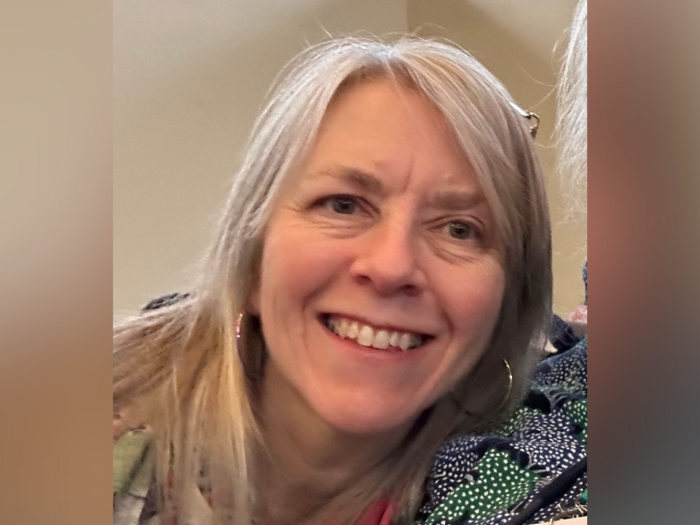Co-chair of SHSC's Disabled Staff Network Group, Cat Obbard shares a personal reflection on being neurodivergent. Cat works as a community mental health nurse for SHSC.
As co-chair of the Disabled Staff Network Group (DSNG) and a multi-neurodivergent woman I wanted to take the opportunity this week to share a little of my own story. I hope that doing so will be an encouragement to other SHSC staff who are either neurodivergent, or questioning whether they might be.
Like many other parents, it was only when my son was finally formally identified as being autistic aged 11 that I started to ask myself ‘the questions’…."he’s like me…I do that…I wonder if?” I had become part of a community of parents who were fighting to get the support their children needed in school and daily life. Alongside this I began the three year journey of pursuing my own assessments.
I am part of a rapidly growing demographic of ‘late-diagnosed’ women. I was 49 when I was formally identified as autistic by a colleague at Sheffield Adult Autism and Neurodevelopmental Service (SAANS), who recommended I consider further assessment for ADHD. I had been a Community Mental Health Nurse (CMHN) in this Trust for 19 years by then. As someone who loves to learn I became a sponge for all things neurodivergent but with a particular focus on ADHD and women.
I found a book, ‘Women and ADHD’ by Sari Solden that could have been written about me and never looked back. If life is a jigsaw this was the missing piece that gave me the right picture on the box lid after 52 years. This crucial information about my brain wiring and who I am was hugely validating. It enabled me almost overnight to stop ‘trying harder’; constantly feeling a failure and taking on others opinions of who I am. This allowed me to begin the much needed and painful process of slowly unmasking. Living a life where it feels that you are the only person without the script, and constantly pushing myself led me to experience two significant periods of neurodivergent burn out, at great personal cost. These experiences are part of what drives my passion for the work of the DSNG.
A significant percentage of DSNG members who regularly attend the group meetings are neurodivergent. In my capacity as chair, I am regularly approached by staff members for support with issues relating to being neurodivergent in the workplace. A common thread that weaves throughout each individual situation is understanding what it means to be neurodivergent. The neurodivergent community has its own unique culture, including communication.
At the recent - and first ever - SHSC Staff Network Group Conference I spoke about neurodivergent communication and the importance of language. SHSC aspires to be an inclusive employer with a progressive and transparent approach to embracing difference. Neurodivergent staff members bring unique perspectives and skillsets that are an asset to the Trust. Good work has been started on improving staff access to reasonable adjustments under the Equality Act, for example practical tools such as technical equipment. Over the coming year the focus will be on addressing undereducation to ensure SHSC is able to communicate at all levels in a more neurodivergent, inclusive and affirming way. This is an exciting time to be part of #TeamSHSC!
